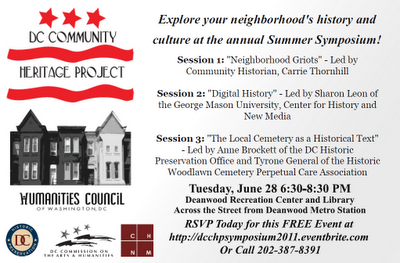Propose a Topic of Conversation, Present a Panel, or Attend and Learn
Don't miss this great opportunity to discuss the international dimensions of race and culture. The following is from the website of the Black German Cultural Society, Inc.
 The Black German Cultural Society, Inc. is excited to announce its First Annual Convention to be held from August 19 to 21, 2011, at the German Historical Institute (GHI) in Washington, DC. With the theme of “Strengthening Transatlantic Connections,” the convention will host guests and presenters from our international community in Germany and the United States.
The Black German Cultural Society, Inc. is excited to announce its First Annual Convention to be held from August 19 to 21, 2011, at the German Historical Institute (GHI) in Washington, DC. With the theme of “Strengthening Transatlantic Connections,” the convention will host guests and presenters from our international community in Germany and the United States.Our keynote speaker will be Noah Sow, the acclaimed journalist, musician, producer and author of “Deutschland Schwarz Weiß” (C. Bertelsmann, 2008), who will speak about “Geteilte Geschichte: The Black Experience in Germany and the US.”
In cooperation with the Humanities Council of Washington, DC, the convention will also feature an award ceremony for Hans J. Massaquoi, who will be given the “Champion of the Humanities Award” in honor of his lifetime achievements as an author, journalist, and cultural ambassador.
Additionally, the convention will feature a photo exhibit on "The Civil Rights Struggle, African American GIs, and Germany," and "Homestory Deutschland: Gelebt - Erlebte Schwarze Deutsche Geschichte(n)."
Furthermore, the meeting will offer workshops, round tables, as well as panel discussions on Afro-German history, culture and literature facilitated by our board members, partner organizations, and distinguished academics in the field.
Confirmed participants include, among others:
Vera Grant (W.E.B. Du Bois Institute, Harvard University)
S. Marina Jones (University of North Carolina, Chapel Hill)
Maria Hoehn (Vassar College)
Leroy Hopkins (Millersville University)
Martin Klimke (GHI Washington)
Priscilla Layne (University of California, Berkeley)
Yara-Colette Lemke Muniz de Faria (Berlin)
Sara Lennox (University of Massachusetts, Amherst)
Amilcar Shabazz (University of Massachussets, Amherst)
William Strickland (University of Massachussets, Amherst)
Topics will include “Race and Ethnicity in Postwar Germany,” “Transatlantic Adoption and ‘Brown Babies’,” “Finding and Reuniting Birth Families,” “Black German Jewishness” as well as “Sharing our Stories,” among others.
We would, however, also like to give participants the opportunity to present during one of our panel discussions, facilitate a workshop, or contribute to the convention in other ways. Please inform us of your interest, ideas, and potential topics.




